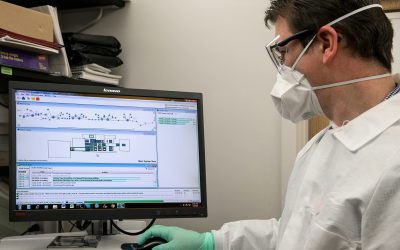The healthcare sector has been looking into ways to use technology to improve patient care as it develops. As hospitals look for experts who can manage and build technological solutions that improve patient care, employment in hospital technology is continually changing. Electronic Health Record (EHR) systems is one of the most significant technological developments in healthcare. EPIC is one of the most commonly used EHR systems globally.
EHR Integration into Healthcare Organizations
EPIC is a health record system used by hospitals to manage patient data electronically. It offers a comprehensive platform that enables clinicians to manage patient care more efficiently and accurately. EPIC’s integration with other systems, such as laboratory and radiology information systems, allows for seamless data transfer across multiple systems, making patient data accessible.
The introduction of EPIC has increased the need for qualified specialists who can run and maintain the system. To operate EPIC systems, hospitals are hiring software developers, data analysts, systems administrators, and trainers. Together, these experts make sure the system runs efficiently and effectively. In order to ensure that clinicians and employees are utilizing the system successfully, they also offer training and assistance.
When it comes to guaranteeing the accuracy and accessibility of patient data, EPIC professionals play a crucial role. They are in charge of upholding the system’s security and making sure that the data is accurate and current. Additionally, they are responsible for resolving any problems that may come up. From the implementation of systems like EPIC, hospitals can access a patient’s whole medical history with the use of EHR systems, allowing physicians to deliver better treatment and make more educated decisions.
IT Professionals in Demand
In addition to EPIC jobs, there are also other technology jobs in hospitals that are focused on improving patient care. For instance, hospitals require IT professionals who can maintain the hospital’s networks, software, and hardware, and also provide support to the hospital staff. They work to ensure that the technology is secure, reliable, and meets the hospital’s needs.
Another growing field in healthcare technology is data analytics. With the increasing availability of data, hospitals require analysts who can use the data to identify trends that can improve patient outcomes. Data analysts work to identify areas for improvement, such as reducing hospital readmissions, improving patient outcomes, and optimizing hospital resources.
As hospitals continue to adopt technology, the demand for positions in hospital technology is anticipated to increase in the upcoming years. Hospitals are on the lookout for experts who have what it takes to run sophisticated IT systems. As a result, for professionals looking for employment in the healthcare sector, these positions present attractive opportunities.
Looking ahead
In conclusion, careers in hospital technology present opportunities for individuals to significantly contribute to enhancing patient care. There is a demand for qualified individuals who can administer and maintain EHR systems, such EPIC, as a result of the installation of these systems. The demand for workers with expertise in network administration, data analytics, and software development is rising. For individuals who are passionate about leveraging technology to improve patient care, these positions present tremendous career options.










